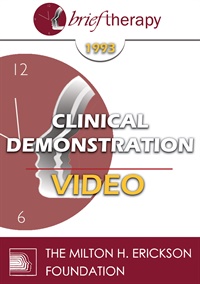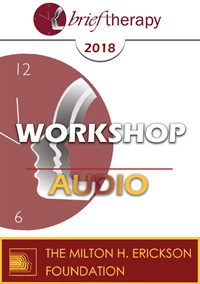
- Average Rating:
- Not yet rated
- Topic Areas:
- Workshops | Single-Session | Brief Therapy | Psychotherapy | Therapist Development
- Categories:
- Brief Therapy Conference | Brief Therapy Conference 2018
- Faculty:
- Michael Hoyt, PhD
- Duration:
- 1:35:35
- Format:
- Audio Only
- Original Program Date:
- Dec 07, 2018
- Short Description:
- Many therapies involve very brief lengths of treatment, including one session. A structure will be presented for organizing the tasks and skills involved in different phases (pre-, early, middle, late, follow-through) of therapy. Numerous case examples, including some on video, will illustrate brief therapy techniques applicable in both initial sessions and in the course of longer treatments.
- Price:
- $15.00 - Base Price
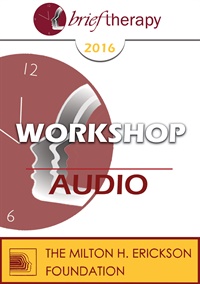
- Average Rating:
- Not yet rated
- Topic Areas:
- Workshops | Single-Session | Brief Therapy | Therapist Development
- Categories:
- Brief Therapy Conference | Brief Therapy Conference 2016
- Faculty:
- Michael Hoyt, PhD
- Duration:
- 2:03:30
- Format:
- Audio Only
- Original Program Date:
- Dec 11, 2016
- Short Description:
- BT16 Workshop 24 - Single Session Therapy: When the First Session May Be The Last - Michael Hoyt, PhDThe most common length of treatment is one session. In this workshop, guidelines will be presented for recognizing which patients are most likely to benefit from a single session and how we can provide it successfully. A structure will be presented for organizing the specific tasks and skills involved in different phases of therapy (pre-, early, middle, late, follow-through). Case examples, some on videotape, will illustrate brief therapy techniques applicable in a one-session-at-a-time therapy and in the course of longer treatments.
- Price:
- $15.00 - Base Price

- Average Rating:
- Not yet rated
- Topic Areas:
- Hypnosis | Hypnotherapy | Short Courses | Brief Therapy | Self-Hypnosis | Single-Session | Anxiety | Stress | Depression
- Categories:
- Brief Therapy Conference | Brief Therapy Conference 2016
- Faculty:
- Paul Koeck, MD
- Duration:
- 1:26:19
- Format:
- Audio Only
- Original Program Date:
- Dec 08, 2016
- Short Description:
- During this workshop with live clinical demonstration, you will learn how to teach your patients ‘Hypnotic Scaling’ in one single session! Hypnotic Scaling is an auto-hypnotic technique to help your patient resolve any problem, stress, anxiety, depression, low self-esteem, … because they will learn how to move up (or down) on their unconscious state-dependent scale from zero to 10 at any moment.
- Price:
- $15.00 - Base Price
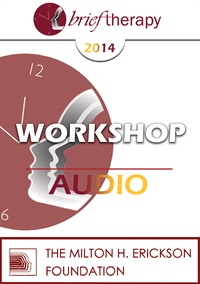
- Average Rating:
- Not yet rated
- Topic Areas:
- Workshops | Single-Session | Brief Therapy
- Categories:
- Brief Therapy Conference | Brief Therapy Conference 2014
- Faculty:
- Michael Hoyt, PhD
- Duration:
- 1:29:04
- Format:
- Audio Only
- Original Program Date:
- Dec 12, 2014
- Short Description:
- Many therapies involve brief lengths of treatment, including a single session. A structure will be presented for organizing the tasks and skills involved in different phases (pre, early, middle, late, and follow-through) of therapy. Numerous case examples, including video, will illustrate brief therapy techniques useful both in initial sessions and in the course of longer treatments.
- Price:
- $15.00 - Base Price
Tags: Single Session Brief Therapy
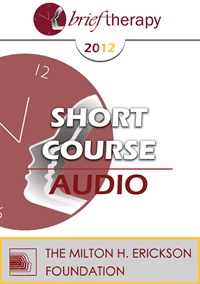
- Average Rating:
- Not yet rated
- Topic Areas:
- Short Courses | Single-Session | Therapist Development
- Categories:
- Brief Therapy Conference | Brief Therapy Conference 2012
- Faculty:
- Arnold Slive, PhD
- Duration:
- 1:18:23
- Format:
- Audio Only
- Original Program Date:
- Dec 09, 2012
- Short Description:
- Walk-in counseling services allow clients to attend a session of therapy without waiting for an appointment. Many are seen for only one session. Research consistently indicates that “one” is the modal number of sessions for all models of therapy and that single sessions are highly effective. This workshop describes therapy, research, strategies, and techniques for making single sessions, whether planned or not, as effective as possible. Emphasis will be on the application of these principles in a variety of walk-in services.
- Price:
- $15.00 - Base Price
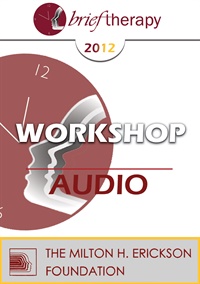
- Average Rating:
- Not yet rated
- Topic Areas:
- Psychotherapy | Workshops | Single-Session | Brief Therapy | Therapist Development
- Categories:
- Brief Therapy Conference | Brief Therapy Conference 2012
- Faculty:
- Michael Hoyt, PhD
- Duration:
- 2:51:05
- Format:
- Audio Only
- Original Program Date:
- Dec 06, 2012
- Short Description:
- Many therapies involve brief lengths of treatment, including a single session. A structure will be presented for organizing the tasks and skills involved in different phases (pre, early, middle, late, and follow-through) of therapy. Numerous case examples, including video, will illustrate brief therapy techniques useful both in initial sessions and in the course of longer treatments.
- Price:
- $15.00 - Base Price
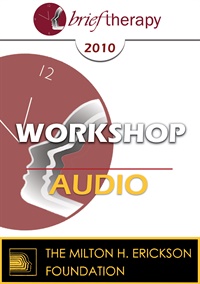
- Average Rating:
- Not yet rated
- Topic Areas:
- Psychotherapy | Workshops | Single-Session | Brief Therapy
- Categories:
- Brief Therapy Conference | Brief Therapy Conference 2010
- Faculty:
- Michael Hoyt, PhD
- Duration:
- 2:03:07
- Format:
- Audio Only
- Original Program Date:
- Dec 12, 2010
- Short Description:
- BT10 Workshop 42 - Single-Session Psychotherapy: Enhancing One-Meeting Potentials - Michael Hoyt, PhD Many therapies involve brief lengths of treatment. A structure will be presented for organizing the tasks and skills involved in different phases (pre, early, middle, late, and follow-through) of therapy. Numerous case examples, including video, will illustrate brief therapy techniques both in initial sessions and in the course of longer treatments.
- Price:
- $15.00 - Base Price
Tags: Single Session
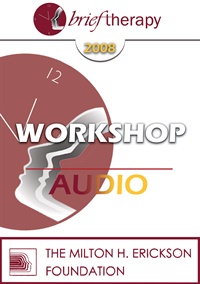
- Average Rating:
- Not yet rated
- Topic Areas:
- Workshops | Psychotherapy | Single-Session | Brief Therapy
- Categories:
- Brief Therapy Conference | Brief Therapy Conference 2008
- Faculty:
- Michael Hoyt, PhD
- Duration:
- 2:08:31
- Format:
- Audio Only
- Original Program Date:
- Dec 14, 2008
- Short Description:
- Many therapies involve brief lengths of treatment. A structure will be presented for organizing the tasks and skills involved in different phases (pre, early, middle, late and follow-through) of therapy. Numerous case examples, including video, will illustrate brief therapy techniques both in initial sessions and in the course of longer treatments.
- Price:
- $15.00 - Base Price
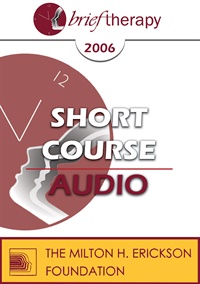
- Average Rating:
- Not yet rated
- Topic Areas:
- Short Courses | Single-Session | Brief Therapy
- Categories:
- Brief Therapy Conference | Brief Therapy Conference 2006
- Faculty:
- Sandy Harper-Jacques, MN | Nancy McElheran, MN | Arnold Slive, PhD | Maureen Leahey, PhD
- Duration:
- 1:19:30
- Format:
- Audio Only
- Original Program Date:
- Dec 07, 2006
- Short Description:
- Immediately accessible, strengths-based, affordable, mental health services are a challenge to deliver. Walk-in, single session therapy is one solution. This presentation will discuss fundamental principles, guidelines for walk-in single session therapy and clinical examples, as well as describe two distinct settings for providing this type of mental health service.
- Price:
- $15.00 - Base Price
Tags: Brief Therapy Single Session
- Average Rating:
- Not yet rated
- Topic Areas:
- Clinical Demonstrations | Group Therapy | Single-Session | Brief Therapy
- Categories:
- Brief Therapy Conference | Brief Therapy Conference 1993
- Faculty:
- Mary Goulding, MSW
- Course Levels:
- Master Degree or Higher in Health-Related Field
- Duration:
- 57:06
- Format:
- Audio and Video
- Original Program Date:
- Dec 11, 1993
- Short Description:
- BT93 Clinical Demonstration 16 - One-Session Group Therapy with Six Clients (Real) From the Audience - Mary Goulding, MSW
- Price:
-
Sale is $29.00
price reduced from Base Price - $59.00


